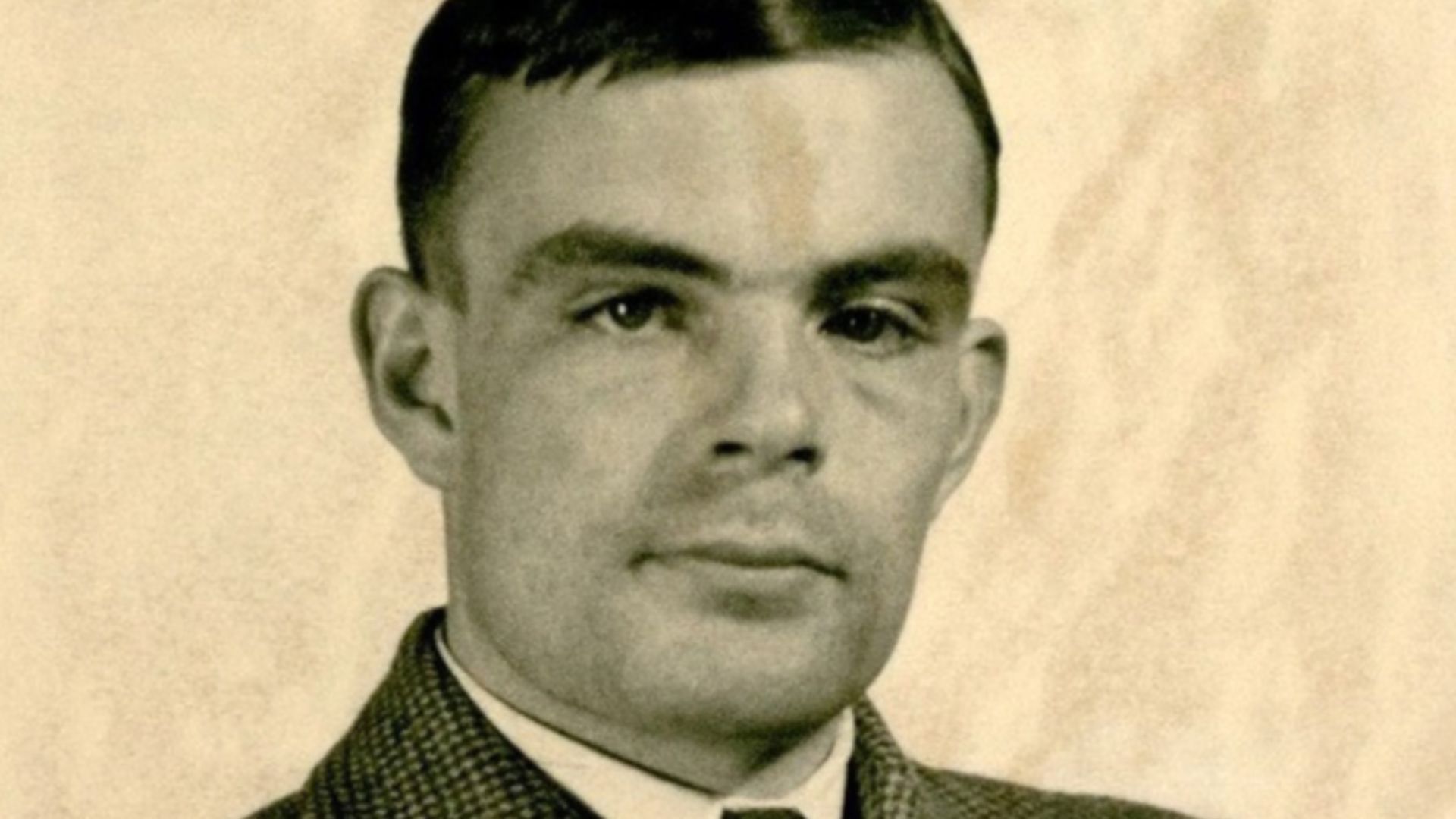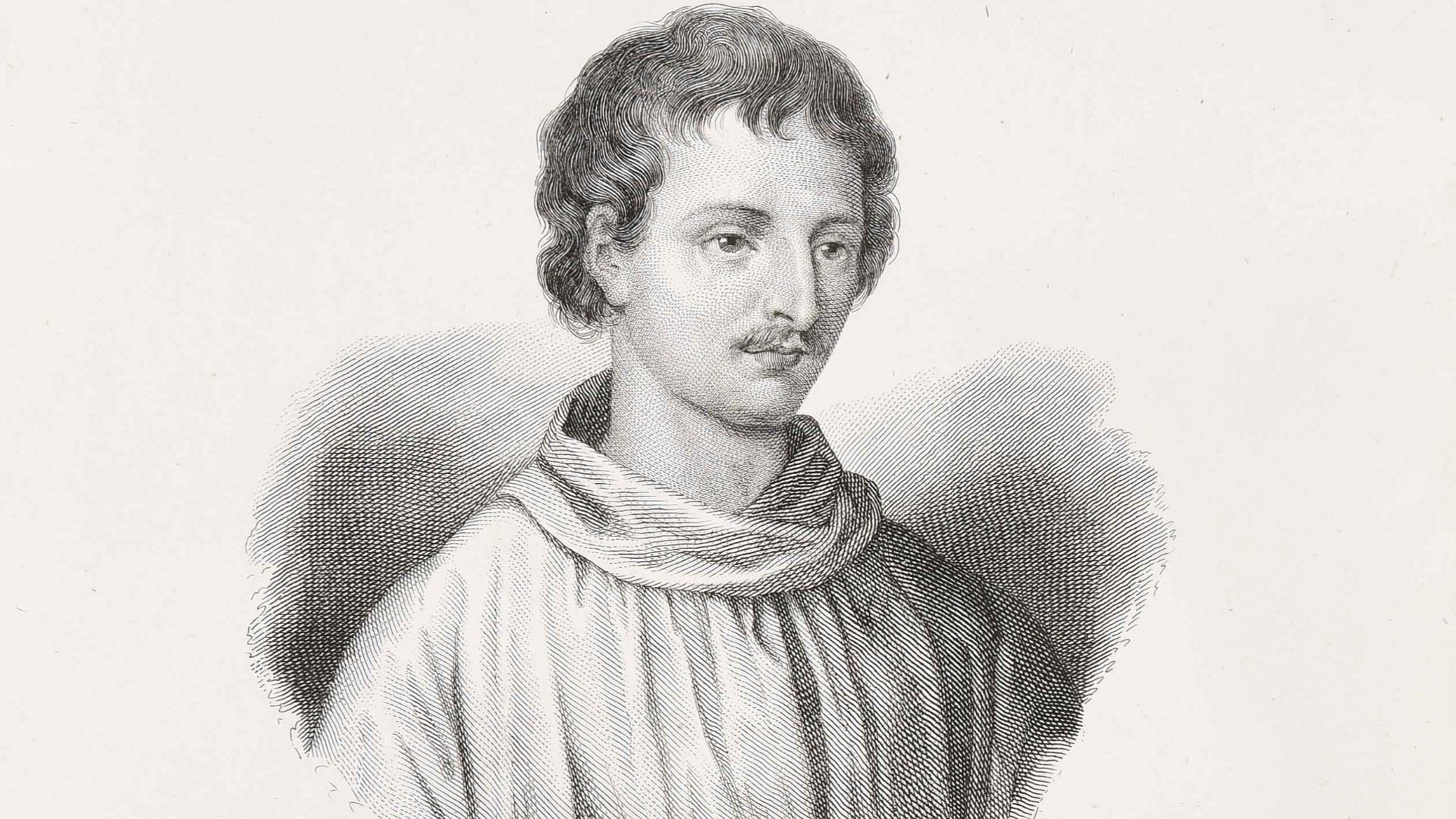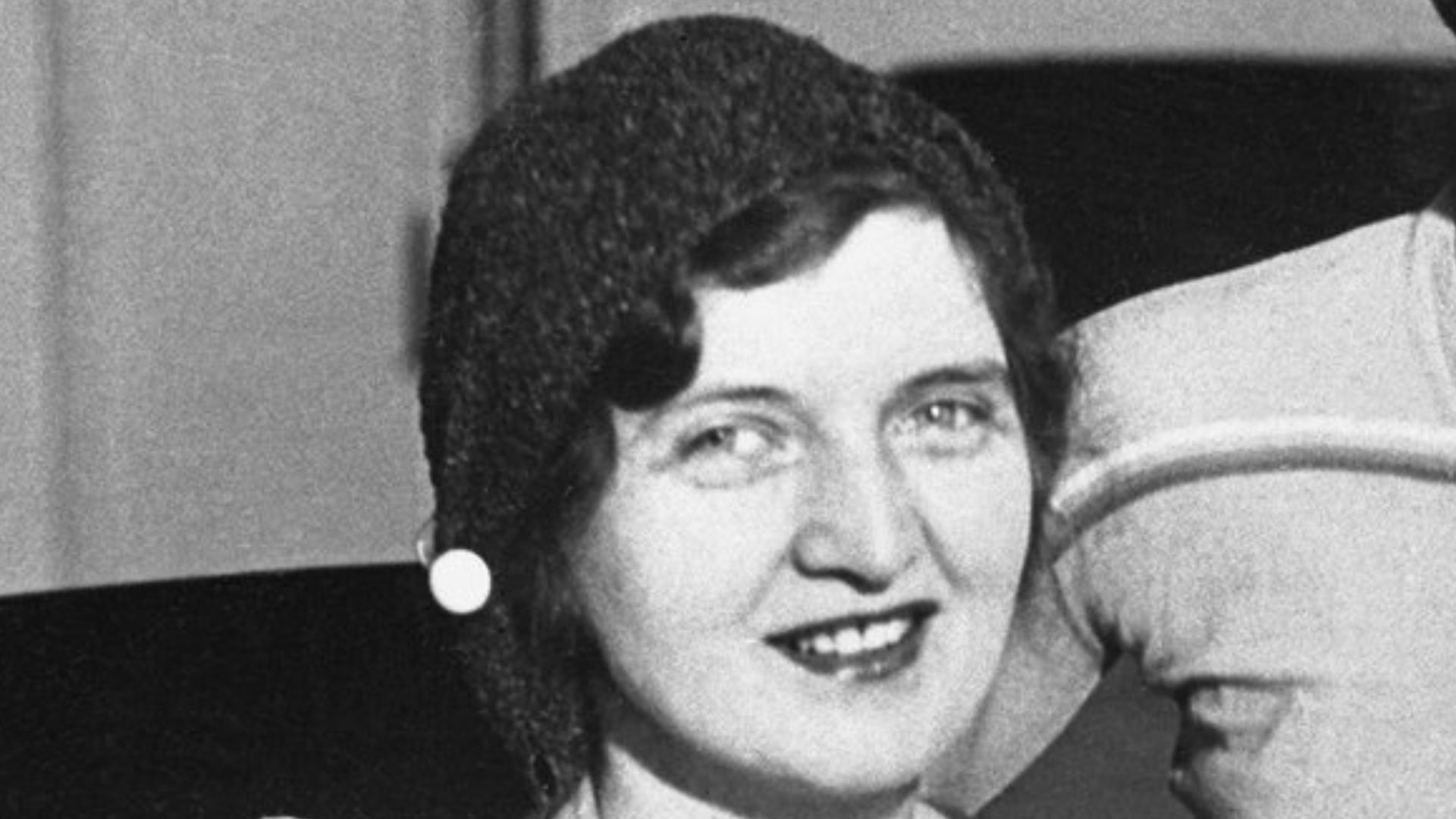Time Will Tell
History celebrates its champions but often condemns those who questioned the norm. Many people who spoke out against dominant beliefs were either ridiculed or punished. Yet, over time, their ideas gained credibility, and their warnings proved prescient. Let’s acknowledge 20 people once labeled troublemakers or fools—now recognized as visionaries who dared to speak truths society wasn’t ready to hear.
 Barbara Kinney, White House Photograph Office on Wikimedia
Barbara Kinney, White House Photograph Office on Wikimedia
1. Galileo Galilei
The Catholic Church branded Galileo a heretic for promoting heliocentrism. His telescope-backed evidence challenged centuries of geocentric belief and landed him under house arrest. In 1992—three centuries too late—the Vatican formally admitted Galileo had been right all along.
 after Justus Suttermans on Wikimedia
after Justus Suttermans on Wikimedia
2. Ignaz Semmelweis
Doctors mocked Semmelweis for insisting they wash their hands before assisting childbirth. His simple hygiene protocol cut maternal deaths dramatically. However, peers refused to change. Only after germ theory gained traction did medicine recognize him as a pioneer of antiseptic care.
 Auguste Alexis Canzi on Wikimedia
Auguste Alexis Canzi on Wikimedia
3. Alan Turing
Despite decoding Nazi messages and shortening World War II, Turing was prosecuted for his sexuality. He was subjected to chemical castration by the UK government, leading to his demise at 41. Now hailed as a computing genius, Turing was officially pardoned decades later.
 Unknown photographer on Wikimedia
Unknown photographer on Wikimedia
4. Stanislav Petrov
In 1983, Petrov ignored a Soviet system warning of an incoming U.S. nuclear strike. Trusting his instinct over faulty tech, he refused to retaliate. History credits him with preventing global nuclear war, though his heroism went unrecognized during his lifetime.
5. Lindy Chamberlain-Creighton
After her baby vanished during a camping trip, Chamberlain insisted a dingo was responsible. Authorities and media mocked her, and she was wrongly convicted. Forensic evidence vindicated her later, exposing the dangers of public hysteria and judicial tunnel vision.
 Lindy Chamberlain Reflects On The Horror Of Losing Baby Azaria | The Project by The Project
Lindy Chamberlain Reflects On The Horror Of Losing Baby Azaria | The Project by The Project
6. Barry Marshall
Marshall’s claim that ulcers stemmed from bacteria, not stress, drew laughter from doctors. To prove it, he drank the H. pylori bacteria and got sick—and then, he cured it with antibiotics. His findings earned a Nobel Prize and transformed ulcer treatment forever.
 WikiEdtingProfile2021 on Wikimedia
WikiEdtingProfile2021 on Wikimedia
7. Joseph Lister
Lister’s push for antiseptic surgery was dismissed as needless fuss by 19th-century surgeons. Despite ridicule, his methods slashed post-op infections and saved lives. Today, hospitals owe their sterilization protocols to Lister’s persistence and scientific foresight.
 Unknown authorUnknown author on Wikimedia
Unknown authorUnknown author on Wikimedia
8. Clair Patterson
He uncovered the toxic effects of lead in gasoline, triggering fierce opposition from the oil industry. Despite smear campaigns, he persisted with meticulous research. His efforts led to bans on leaded fuel, drastically reducing exposure levels and cementing his legacy as a pioneer in environmental health.
 Unknown authorUnknown author on Wikimedia
Unknown authorUnknown author on Wikimedia
9. Sinéad O’Connor
In 1992, O’Connor ripped up the Pope’s photo on live TV, denouncing abuse in the Catholic Church. Public outrage crushed her career. Decades later, global investigations confirmed institutional cover-ups, reframing her act as a bold stand against corruption rather than a scandalous outburst.
10. Giordano Bruno
Bruno proposed that stars were distant suns with their own planetary systems—an unthinkable claim in the 1600s. The Church labeled him a heretic and executed him. Centuries later, exoplanet discoveries confirmed his vision, establishing Bruno as a scientific trailblazer punished for ideas far ahead of his time.
 Caterina Piotti Pirola on Wikimedia
Caterina Piotti Pirola on Wikimedia
11. Richard Jewell
He spotted the suspicious backpack at the 1996 Atlanta Olympics and helped evacuate the area. Instead of praise, media outlets and law enforcement leaks publicly smeared him as the prime suspect. The real bomber, Eric Rudolph, was caught in 2003, finally clearing Jewell’s name.
 Richard Jewell: The 1996 60 Minutes interview by 60 Minutes
Richard Jewell: The 1996 60 Minutes interview by 60 Minutes
12. Rachel Carson
Carson’s Silent Spring exposed the ecological dangers of DDT, igniting fury from chemical companies. She was labeled unhinged and unscientific, despite her meticulous research. Later, her work sparked regulatory reforms, led to the U.S. ban on DDT, and inspired the formation of the Environmental Protection Agency in 1970.
 The original uploader was Cornischong at Luxembourgish Wikipedia. on Wikimedia
The original uploader was Cornischong at Luxembourgish Wikipedia. on Wikimedia
13. Greg LeMond
As a Tour de France champion, LeMond faced backlash for questioning Lance Armstrong’s performance and demanding doping transparency. Sponsors dropped him, and the cycling world turned cold. Armstrong’s eventual doping admission proved LeMond right and elevated him as a voice of integrity in the sport.
 Gage Skidmore from Surprise, AZ, United States of America on Wikimedia
Gage Skidmore from Surprise, AZ, United States of America on Wikimedia
14. Monica Lewinsky
Lewinsky was relentlessly mocked and scapegoated during the Clinton impeachment saga. The media frenzy stripped her of both privacy and professional opportunities. In later years, her story was reframed as one of power imbalance and public shaming, and she emerged as a leading anti-bullying advocate.
15. Henry A. Wallace
As FDR’s Vice President, Wallace spoke against racism, unchecked capitalism, fascism, and imperialism. His bold ideas got him sidelined by the Democratic establishment in 1944. Today, his concerns about corporate power and social equity echo in modern progressive platforms.
 Harris & Ewing, photographer on Wikimedia
Harris & Ewing, photographer on Wikimedia
16. Nan Britton
Britton published her memoir in 1927, claiming President Warren G. Harding fathered her daughter. The public mocked her, and courts dismissed her case. DNA testing in 2015 confirmed her story, vindicating her reputation nearly a century after she was dismissed as a liar.
 UnknownUnknown / Bettmann collection on Wikimedia
UnknownUnknown / Bettmann collection on Wikimedia
17. Edward Snowden
He leaked NSA documents, revealing mass government surveillance of private citizens. He was charged with espionage and fled the U.S. to avoid prosecution. His disclosures triggered worldwide privacy debates and reforms, earning him praise as a civil liberties whistleblower despite his ongoing legal exile.
 https://www.youtube.com/user/TheWikiLeaksChannel on Wikimedia
https://www.youtube.com/user/TheWikiLeaksChannel on Wikimedia
18. Katherine Howard
At age 17, Katherine became Henry VIII’s fifth wife and was executed two years later for alleged adultery. For centuries, she was branded a scheming seductress. Scholars now highlight her lack of agency and grooming. They explain how she was a victim of Tudor court politics.
 After Hans Holbein the Younger on Wikimedia
After Hans Holbein the Younger on Wikimedia
19. Frederick II
The Holy Roman Emperor promoted science, secular rule, and interfaith dialogue in the 13th century. His defiance of papal control earned him excommunication and scorn. Today, historians praise his cosmopolitan policies. His clash with the Church is seen as a battle between progress and dogma.
20. Socrates
This philosopher challenged Athenian norms through relentless questioning. He encouraged youth to think critically. The state charged him with impiety and corrupting the young, sentencing him to capital punishment. His legacy, preserved through Plato’s writings, underpins much of modern philosophy and defines the pursuit of truth through reasoned dialogue.
KEEP ON READING

The 10 Most Prominent Monarchies & 10 You've Never Heard…
Grand Monarchs Vs. Humble Kings. Monarchies may seem like relics…
By Chase Wexler Jun 16, 2025
20 Historical Pariahs Who Were Actually Right
Time Will Tell. History celebrates its champions but often condemns…
By David Davidovic Jun 13, 2025
The 20 Bravest Acts Done In History
Impacting The World Through Courage. History is not always built…
By Chase Wexler Jun 9, 2025
20 Historical Figures Who Died In Bizarre Circumstances
How Many Of These Stranger Than Fiction Deaths Do You…
By Emilie Richardson-Dupuis Jun 19, 2025
20 Things Women Weren't Allowed to Do Until the 20th…
The Rights Women Had to Fight For. Women's rights have…
By Christy Chan May 7, 2025
The 20 Biggest Riots The World Has Ever Seen
Civil Unrest That Shook Nations. Riots have erupted throughout history…
By Chase Wexler Jun 12, 2025





